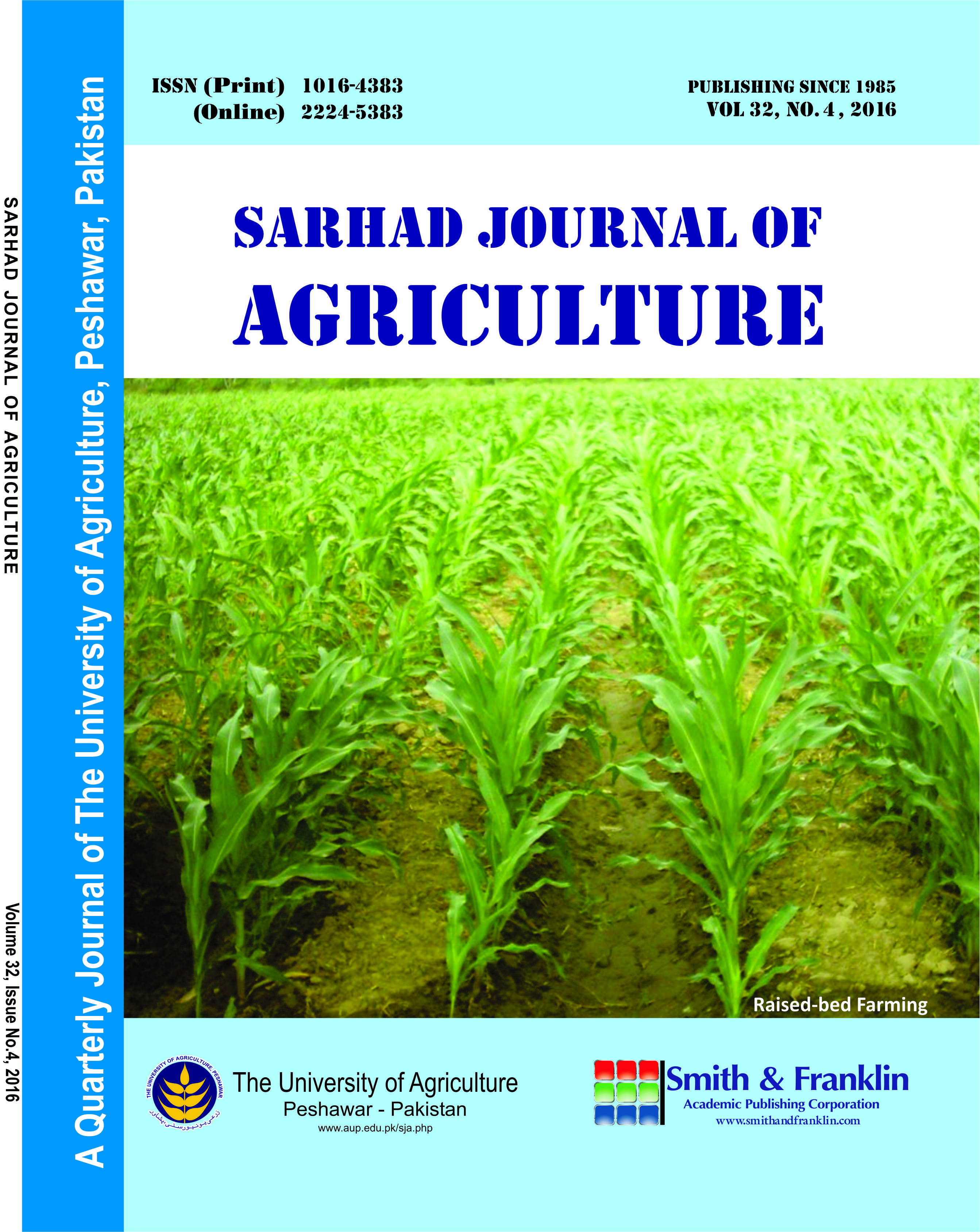A Critical Analysis of the Economic Valuation of Canal Irrigation Water in Punjab, Pakistan
A Critical Analysis of the Economic Valuation of Canal Irrigation Water in Punjab, Pakistan
Hafiz Qaisar Yasin1*, Dora Marinova2 and Muhammad Naveed Tahir3
ABSTRACT
Economic valuation of irrigation water is one of most critical water governance issues in Pakistan. In the agriculture‑dominant province of Punjab, low irrigation water charging rates lead to its inefficient use by farmers. Under the rapidly increasing water scarcity and climate change issues, it is inevitable to assess the actual economic value of canal irrigation water in Punjab. This study applied the Residual Valuation Method to assess the real economic value of canal irrigation water of four major crops (wheat, rice, cotton and sugarcane) in Punjab. The study found that the average economic values of wheat, rice, cotton, and sugarcane crops are PKR 2.6/m3, PKR 2.4/m3, PKR 2.4/m3, and PKR 3.0/m3, respectively. These values are substantially higher than the current flat-rate canal irrigation water charging rates in Punjab. The research further indicated the need to enhance canal water charging rates to ensure its efficient use and sustainable management. The study also observed that any increase in irrigation water charge rate by the government has to be linked with farmers’ overall economic returns from crop production along with ensured irrigation supply and reliable service delivery.
To share on other social networks, click on any share button. What are these?







